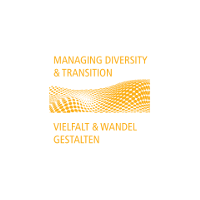Tatyana Churchulieva-Knight: Bulgaria
Fieldwork in Bulgaria (Plovdiv, Stara Zagora, and Parvomay) from 16th of April to 2nd of May 2021
Between 16th April and 2nd May, I was able to work with the archives of the ‘Ivan Vazov’ public library and briefly in the BNR (national radio) branches in Plovdiv and Stara Zagora- - the latter having a large collection of audio recordings of Thracian wedding bands from the 1970s and 1980s. [...] I managed to check, read or photograph, and print a vast amount of articles from the periodicals dating between 1944 and 2021.
My main focus of research in the context of my dissertation project "Musical Life in Transition - An Auto Ethnography of Multiethnic Bulgarian Wedding Bands During the End of the Communist Period" was the Plovdiv region […] - the place of the greatest concentration of wedding bands in the 1970s, 1980s, and 1990s. [...]
I was interested in the transition to the then new political system based on the ideology of the philosophers Marx and Engels, and the changes that occurred in Bulgarian villages. With the new policy, the traditions of the private agricultural holds and the patriarchal social system in its complexity, were inevitably changed. Hence, the changes in the customs like weddings. The initial transition from monarchy to socialism, and later from socialism to democracy, was reflected in the music by means of its development, peak, and eventual decline. For my research, it was important to study the communist politics and how they assessed the new social order with the idea of gender equality. Later on, I would research how that idea was connected with the wedding band’s music making and the women's engagement in folklore performances on the official stage. [...]
I was also interested in articles by Bulgarian ethnomusicologists connected with the ‘sound‘ of socialism on the official performance stages and also the cultural response in the years of transition to democracy. I found numerous academic texts which will form part of my analysis and references. [...] I also took photographs from the places I visited at the weekends during my stay in Bulgaria and I created video and voice recordings with my informers—including one wedding band singer, Yanka Ivanova. The meeting wasn’t on my original agenda but it happened and it was very satisfactory because helped me to fill some gaps in my ethnographical work. [...]
Luckily, [...] I also managed to see the presidential visit in my hometown Parvomay on 1st of May. There was a big festival and a well-organised folklore program. I spoke with one of the organisers who invited me in September to their music festival of the Bulgarian instrumental groups (wedding bands) in the town. That will be a fantastic opportunity for me to meet all the popular musicians of wedding bands which still perform their music despite playing out of the context of the wedding. [...]
I’m delighted that the majority of the time-consuming work in the library archive is already done. [...] I managed to meet people for interviews which I had hoped to do but which I didn’t even put it in my outline because of the pandemic situation.
So I would like to say I had a very successful research trip to Bulgaria.
